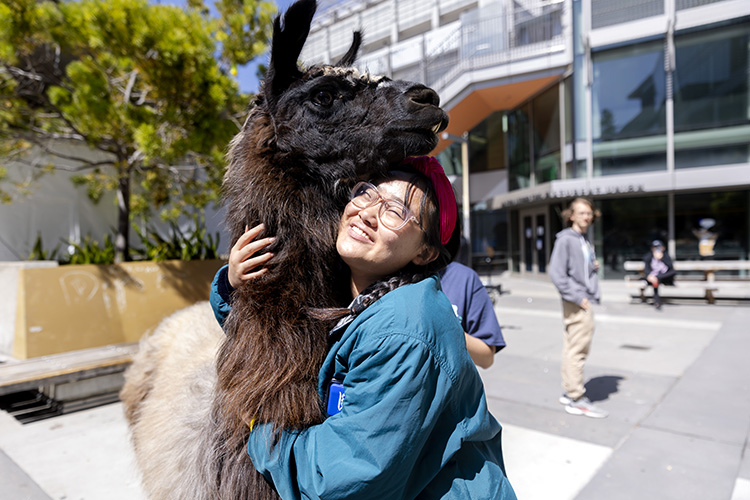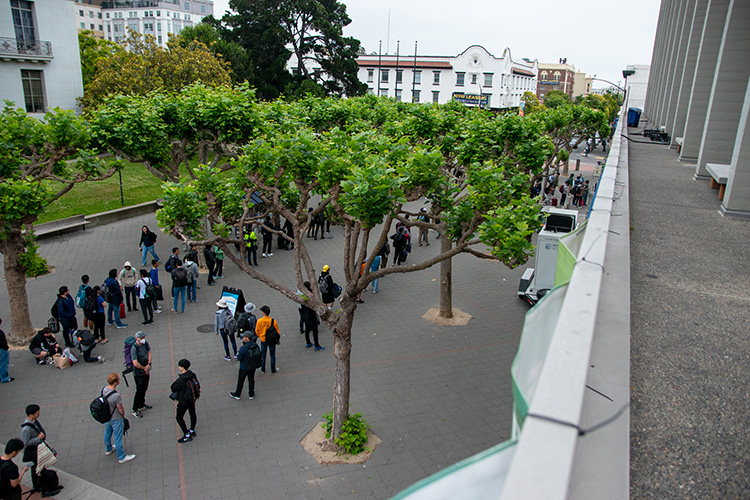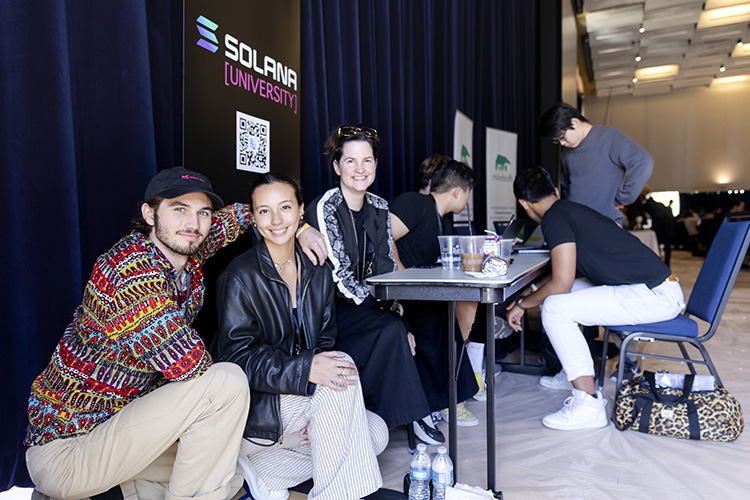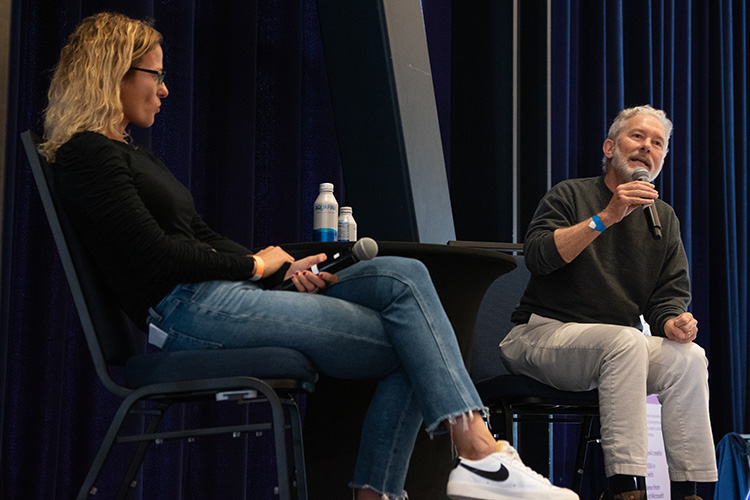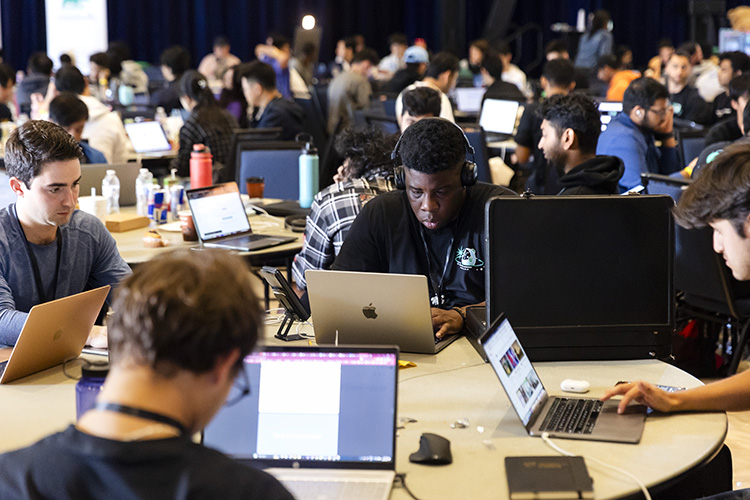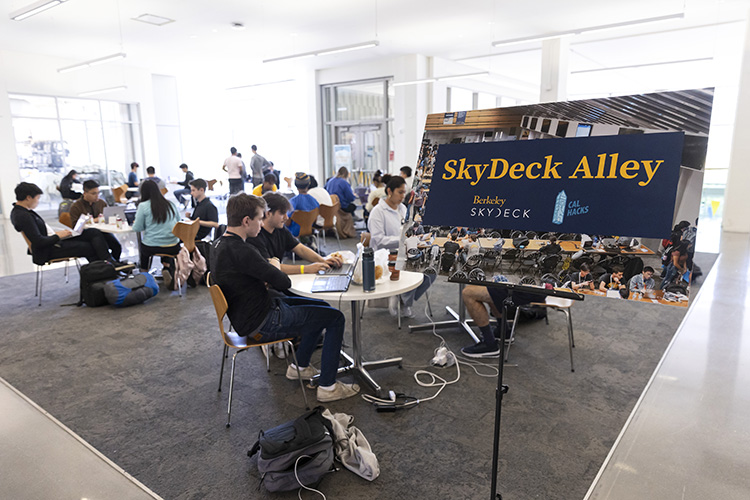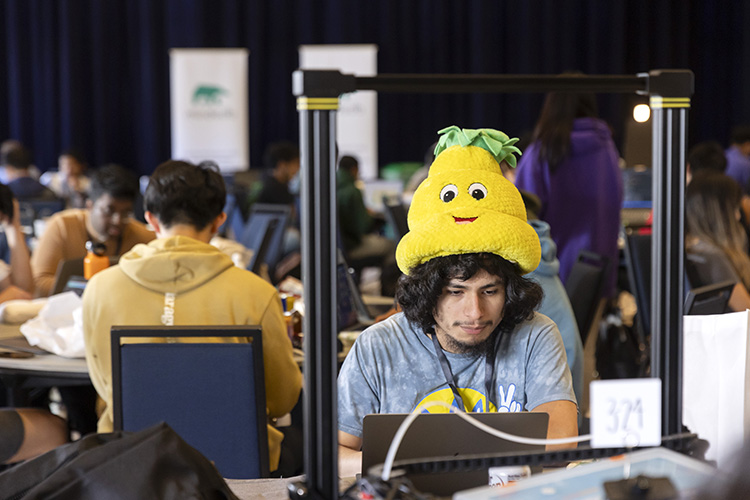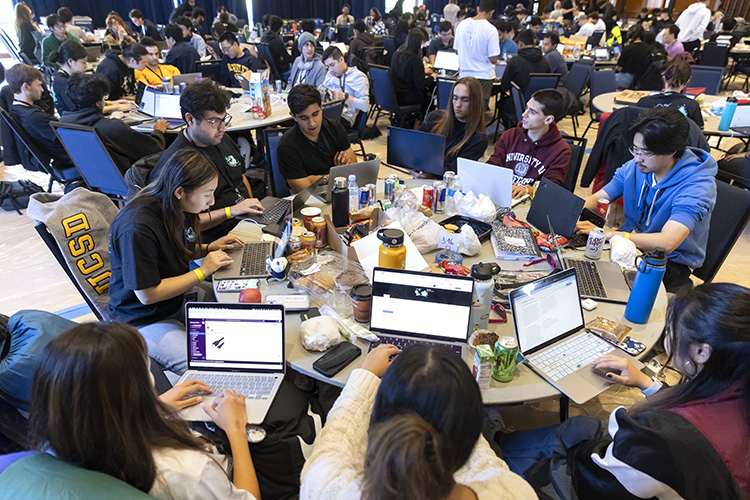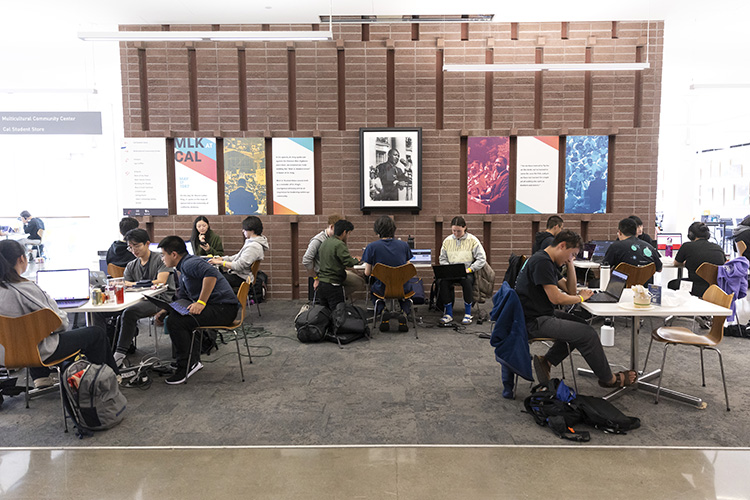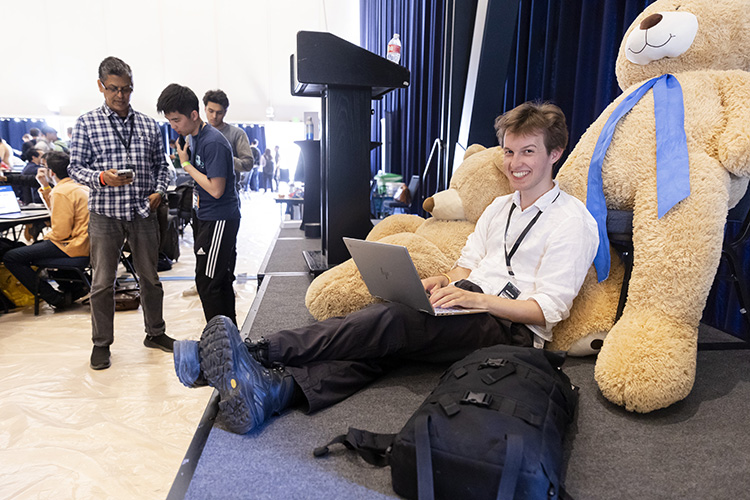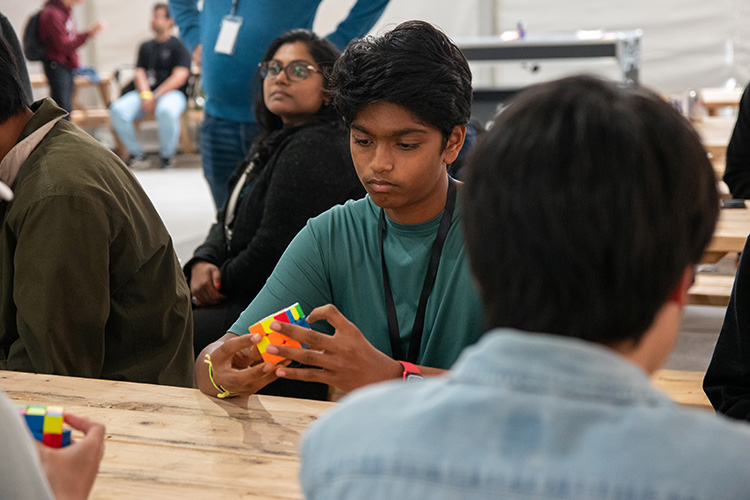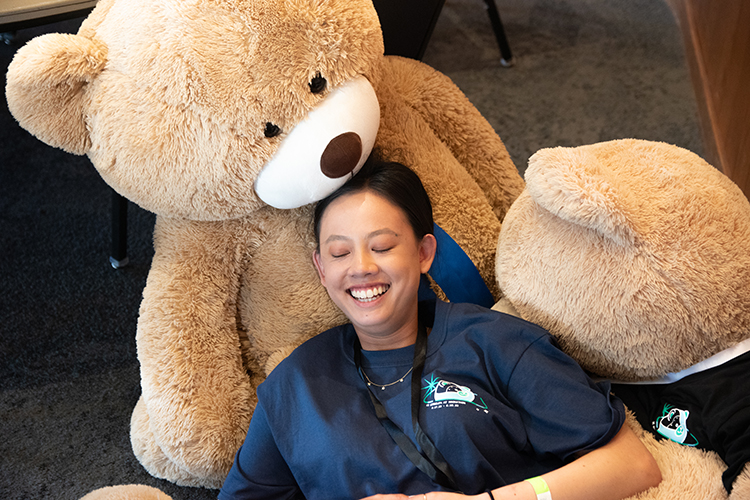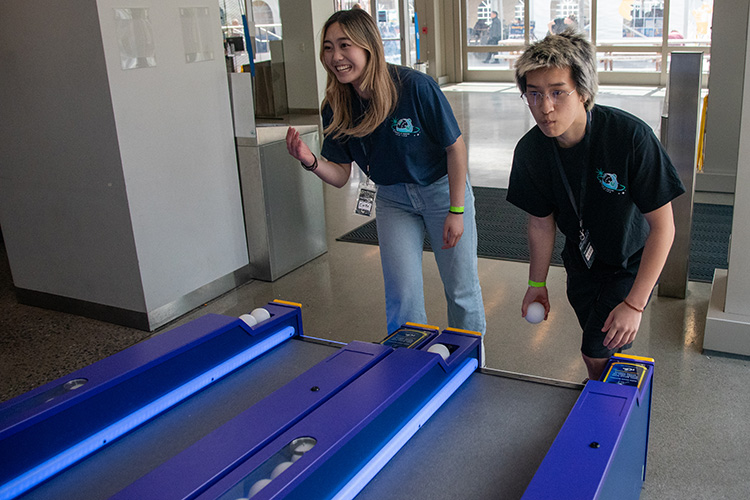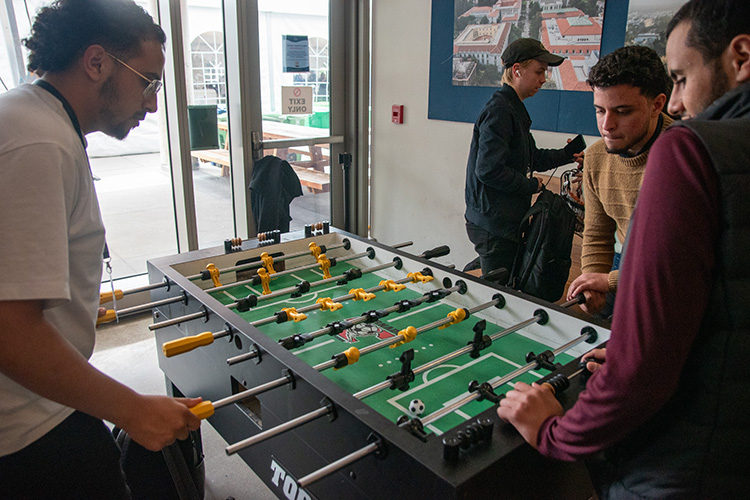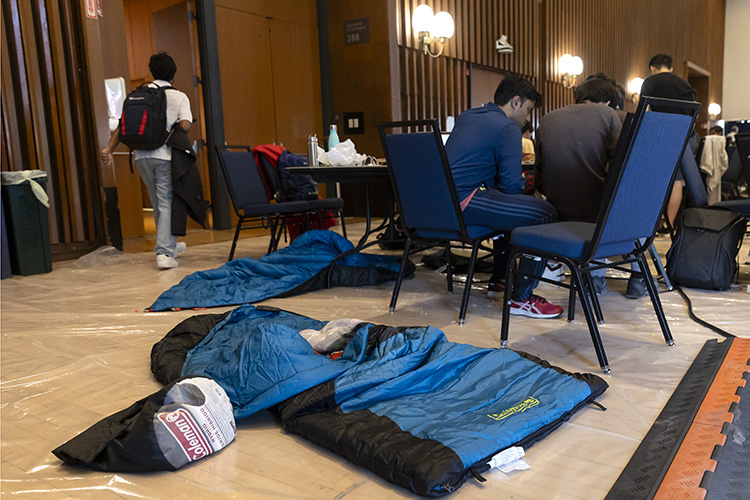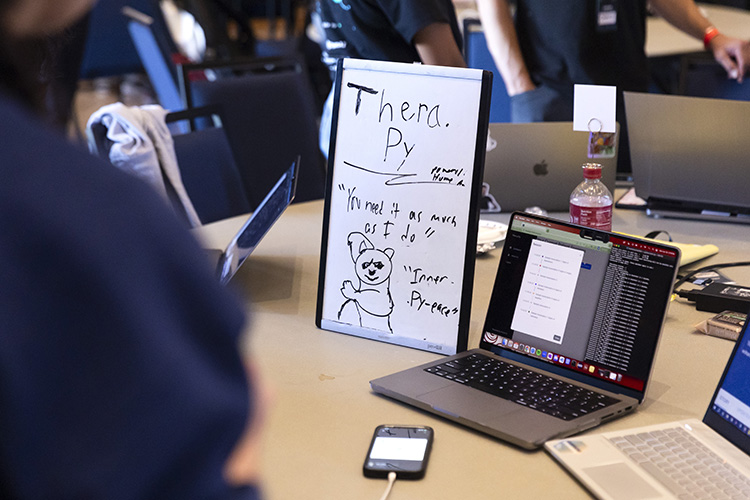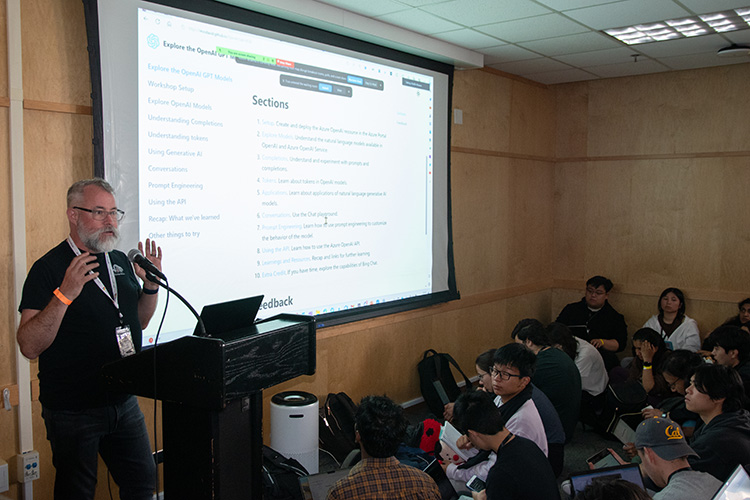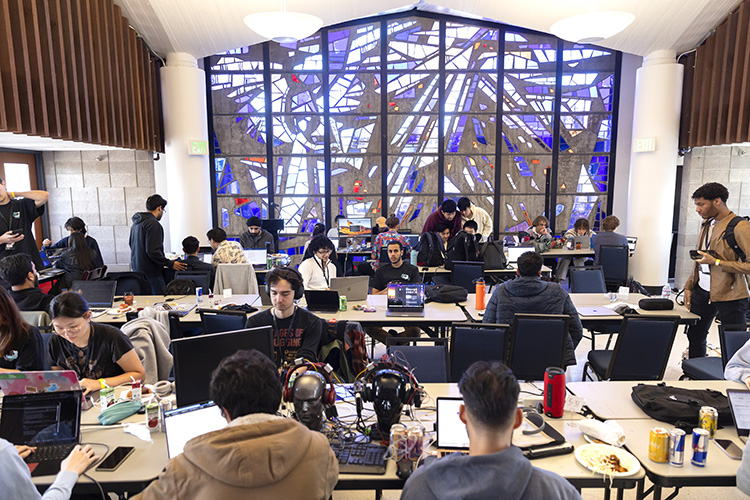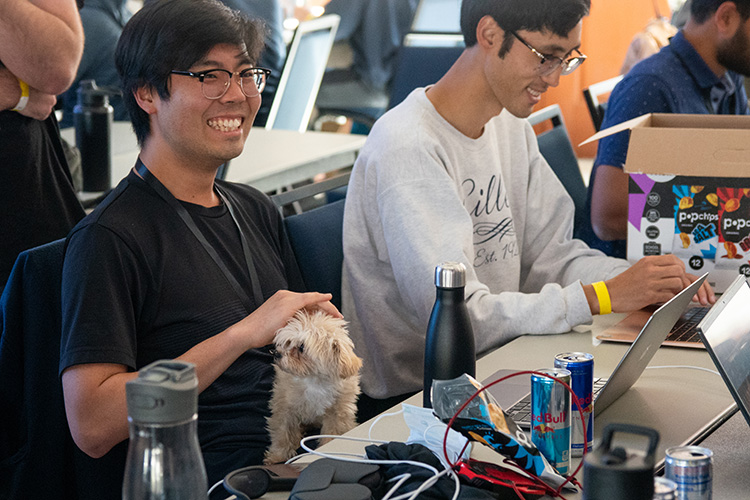UC Berkeley cultivates festive culture of ‘free thinkers’ at AI hackathon
Computer hackers from around the world convened at Berkeley last weekend for what was considered the largest AI language learning model hackathon ever held.
June 22, 2023
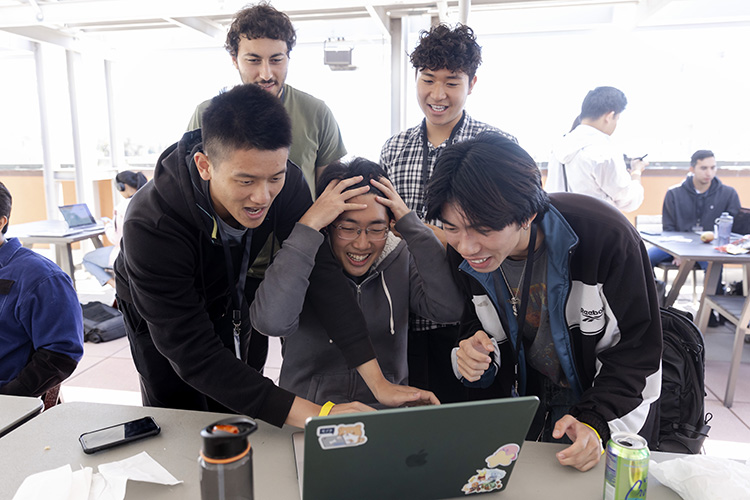
Computer hackers from around the world convened at UC Berkeley last weekend for what was considered the largest AI language learning model hackathon ever held. (Photo by Brittany Hosea-Small)
Over 1,200 computer hackers from around the world packed UC Berkeley’s Martin Luther King Jr. Student Union last weekend during a 36-hour artificial intelligence (AI) learning language model (LLM) hackathon that Berkeley leaders say was the largest event of its kind.
Dubbed “the Woodstock of Hackathons,” the event was hosted by Berkeley’s premiere startup accelerator, Berkeley SkyDeck, and Cal Hacks, a nonprofit that runs collegiate hackathons. Hackers traveled to campus from as far away as New Zealand and Singapore to bring their AI-inspired projects to life by building applications on top of LLMs similar to ChatGPT.
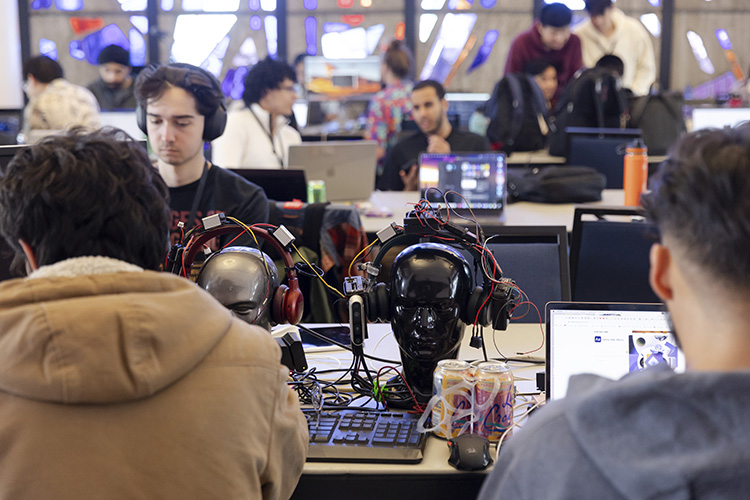
Hackers created projects that spanned various industries, including gaming, health care, finance and even AI products made to enhance headphone audio, as seen here. (Photo by Brittany Hosea-Small)
Participants draped their sleeping bags across the student union’s floors, vied for elbow room around tables, and spilled over into Zellerbach Hall and lower Sproul Plaza, glued to their laptops. All competed in hopes that their projects would be one of the four $50,000 winners.
Hackers looking for a break from their computer screens played foosball or skeeball in the courtyard. Others sought out real llamas provided outside the student union to keep participants’ mental health in check, tried to solve Rubik’s Cubes, or cuddled with the many life-sized teddy bears scattered across the event stage in the student union.
Panel discussions and workshops were also offered, led by the likes of Microsoft’s Annie Pearl and Mark Nitzberg, an AI scientist from the Berkeley Artificial Intelligence Research Lab, who delved into how to build models around responsible and ethical AI use.
Some hackers, though, found no solace in taking breaks, which contributed to the nearly 2,000 cans of Red Bull energy drink that were consumed during the course of the hackathon. After 36 straight hours of hacking, 12 groups were chosen as finalists — out of a total of 268 teams — to present their projects, and ultimately, four teams became the event’s $50,000 winners, receiving funds to help launch their entrepreneurial endeavors.

Hackathon participants take a selfie at the conclusion of the 36-hour event. From a total of 268 teams, four were chosen as $50,000 winners. (Photo by Brittany Hosea-Small)
Winning projects covered the gamut of AI use, from creating in-depth backstories for non-player characters in gaming, to tackling financial planning and management, to creating health and wellness plans through blood panel results.
Chon Tang, a founding partner of the Berkeley SkyDeck Fund, said the event was the largest AI LLM hackathon ever, and that it provided, in one place, all the tools hackers needed to explore and begin their AI journeys.
“Learning language models have the potential to fundamentally change the way we create and work, bringing a new wave of prosperity,” said Tang. “[AI] technology is so new, but Berkeley alums and researchers have co-founded all of the key companies in this space, including OpenAI and Anthropic. … What better place to kickstart the Summer of AI than the campus that has been seen as the welcoming home of freethinkers and disruptors for decades?”
